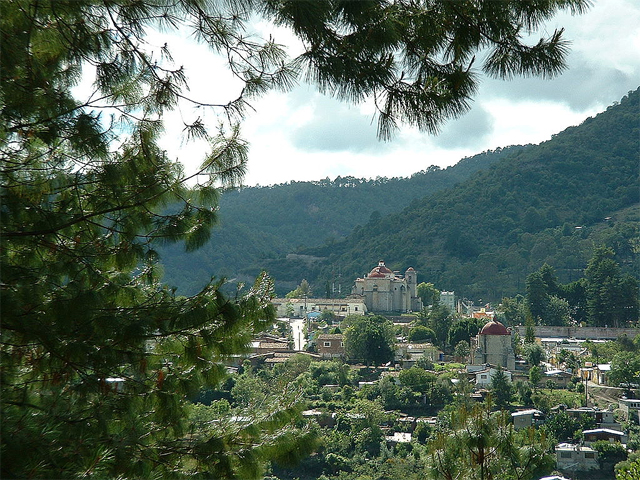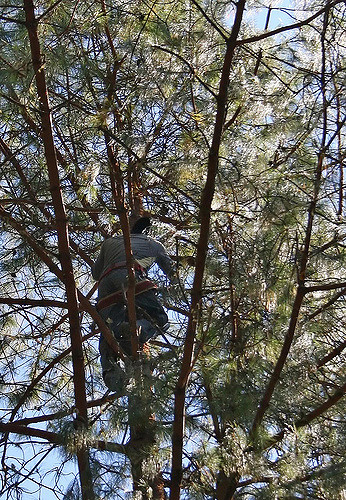A news report from December 2010 explained that about 30 years earlier, the Zapotec municipality of Ixtlán de Juárez had gained the right from the Mexican government to manage its forest resources themselves. Before then, outside interests had exploited the forests for their resources without much thought for the future. With the people of the municipality in charge, things were starting to change. The Zapotec were caring for the land. Enterprises run by the town employed 300 people in logging, making wooden furniture, and working in the forest.

A recent Inter Press Service news report from southern Mexico brings the story up to date. It covers a range of issues involving the forests of the Sierra Juárez, among which it devotes several paragraphs to describing the forest management practices in the Zapotec municipality. Forest managers feel that their strategies can help combat the effects of climate change.
Rogelio Ruiz, a silviculturist in La Trinidad, a community in the municipality, told IPS that native forests are exceptionally effective in mitigating the effects of climate change but they are also impacted by the rise in temperatures, variations in amounts of rainfall, and the spreading of insect pests that the changes bring about.

People in the ecoregion, the Sierra Juárez, are well aware of the dangers posed by pests. The pine sawflies, which eat the needles on pine trees, are destroying forests in the mountains. Approximately 10,000 hectares of forests in the region are believed to be at risk. Ruiz told the reporter that out of 805 hectares of forest controlled by La Trinidad community, 106 have already been damaged by the pests. He explained that workers applied an aerial fumigation of a bio-pesticide back in September.
In the whole Ixtlán municipality, 600 hectares have been damaged by the insects. Forest managers have been experimenting with different species of pines in the nursery. Sergio Ruiz, a forest advisor for the Santo Tomás Ixtlán Forest Union, explained that they are trying to develop trees that grow faster and are more resistant to pests.
It appears from the details provided by the IPS news story that giving the communities the right to manage their forests was a very wise move by the Mexican government. While forestry professionals might argue about some of the details, the Zapotec treasure their forests and are attempting to do the right things for the natural community that surrounds them.